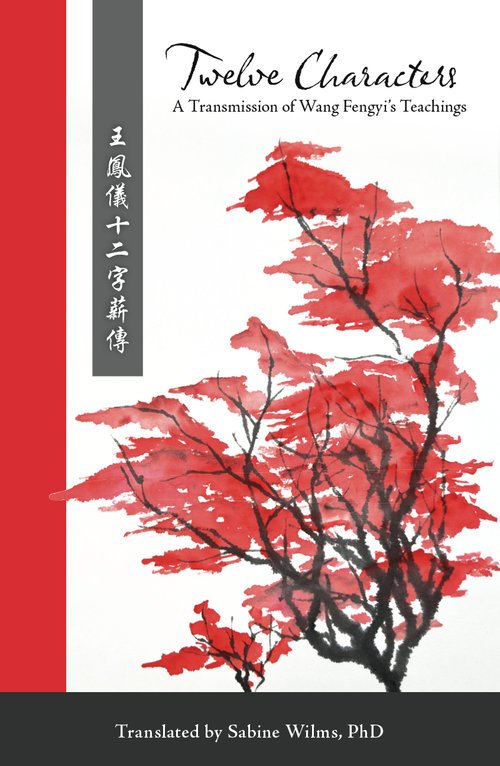Wang Fengyi and Five Element Virtue Healing
What follows is just a brief reflection of my personal understanding and a bit about my involvement with this work.
“Zēngzǐ said: ‘Profound indeed, the greatness of xiào!’
— Xiaojing 《孝經》 (Classic of Loving Respect for Elders)
“The difference of being in command and losing command over the emotions is the root of life and death, and the starting point of living and dying.”
— Lüshi chunqiu 《呂氏春秋》 (translated by H. Fruehauf)
Born in 1864 in modern Liaoning Province in China's Northeast, Wang Fengyi 王鳳儀 is celebrated in China as a peasant saint and the founder of a system of healing that has been translated into English in phrases like "virtue healing" or "five-element healing through the emotions" (xing li liao bing 性理療病, literally "treating disease through inner nature principles").
Rooted in a powerful combination of ideas and practices from Buddhism, Confucianism, Daoism, and Chinese medicine, the system of healing through emotional release, moral cultivation, and virtuous actions that Wang Fengyi (1864-1937) developed, has persisted and grown in China over the past century. It continues to be practiced in rural northeastern China by local healers who successfully employ storytelling, lectures on virtue, personal confessions, and a set of five chanted affirmations modeled on the five elements, to reverse any kinds of disease processes in the patients who come to seek their help. Commonly known in English as the "five elements," the wuxing 五行 (more literally translated as "five phases, movements, or dynamic states") consist of wood, fire, earth, metal, and water, relate to each other in cycles of control or generation, and are associated in Chinese medicine as well as in the Wang Fengyi system with the liver, heart, spleen, lung, and kidney respectively. According to Wang Fengyi's teachings, and differing slightly from standard Chinese medicine theory, these five elements are further associated with the five virtues of empathy (仁 ren), ritual and propriety (禮 li), integrity and trust (信 xin), justice and righteousness (義 yi), and wisdom (智 zhi), as well as with the five vices of anger (怒 nu), hatred (恨 hen), blame (怨 yuan), irritation and judgment (惱 nao), and annoyance and disdain (煩 fan).
For more information about the Wang Fengyi system of five-element healing through the emotions, read Heiner Fruehauf's introduction to my book Let the Radiant Yang Shine Forth: Lectures on Virtue, which is the translation of Liu Yousheng's lectures. See below for more information on my involvement with this book. For bibliographic information and content excerpts, or to purchase a copy, visit the ONLINE STORE. To deepen your understanding of the Chinese attitude of unconditional love, gratitude, and devotion to one's parents, you may want to read my translation of the "Classic of Xiào" (Xiaojing 孝經), one of the most important classics of Chinese culture, available as an e-publication through the store. Other resources are listed here:
A video by Heiner Fruehauf that includes a recording with Liu Yousheng.
Heiner Fruehauf's Introduction to Let the Radiant Yang Shine Forth.
Five Elements chants to affirm the heavenly nature
Information in our Online Store: Enter “Wang Fengyi” as your search category.
Let the Radiant Yang Shine Forth: Lectures on Virtue
Twelve Characters: A Transmission of Wang Fengyi’s Teachings
Xiaojing 《孝經》: Classic of Loving Service and Devotion to One’s Elders.
A number of blog posts: Enter “Wang Fengyi” as your search category.
Shanrendao 善人道 (Path of the Good Person)
Retreats in China and the West
In 2010, a group of foreigners for the first time participated in a Wang Fengyi retreat in China, facilitated by Heiner Fruehauf, affiliated with the National University of Natural Medicine in Portland, Oregon. This experience has been followed since 2011 by silent two-week retreats in the United States and elsewhere. Participants from these retreats continue to meet in different formats to chant and witness each others' struggles and progress with the work and to discuss its application in healing work. Based on my experience participating in the 2011 retreat and in response to a request by Heiner Fruehauf and Liu Lihong, I have since translated and published two books on these teachings, Let the Radiang Yang Shine Forth and Twelve Characters (see below).
Led by Liu Lihong and Heiner Fruehauf, with assistance from Abbot Ming Chan, Wang Qingyu, and Zhao Lin, these two weeks of intense inward looking and "emptying out the garbage can" completely changed my life. I will be forever grateful for the effect that this work has had on my life, at the professional and personal levels alike. And like a pebble thrown in a still pond, the circles just keep getting bigger and bigger...
Here is a selection of images from that magical time:
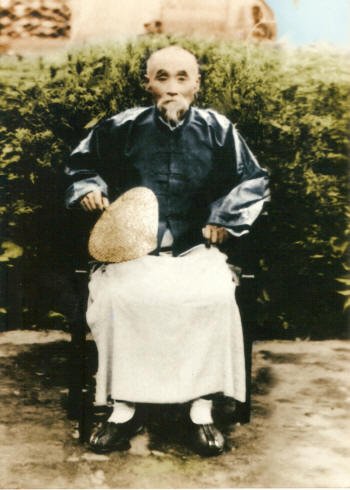
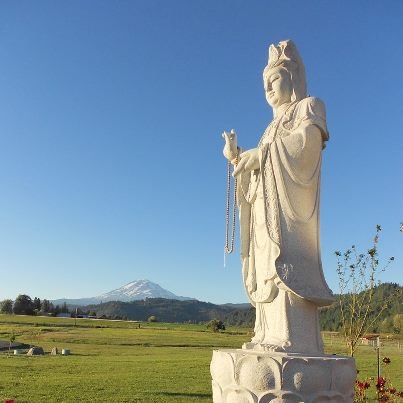
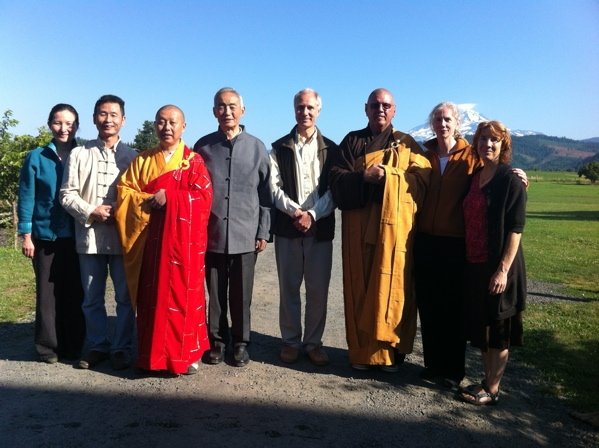
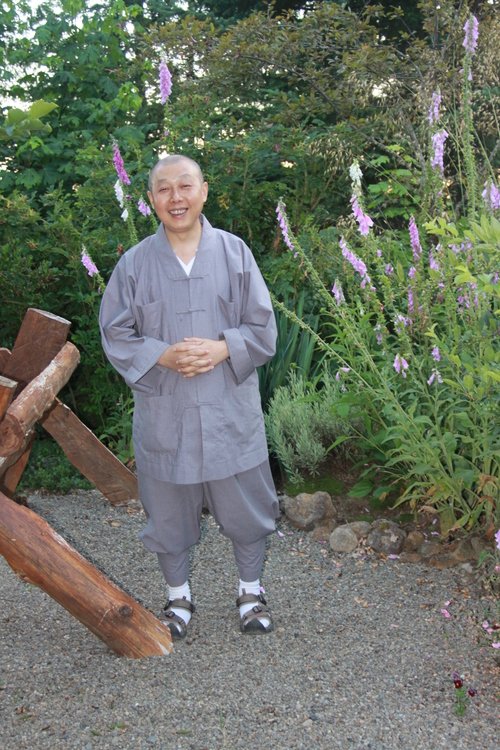

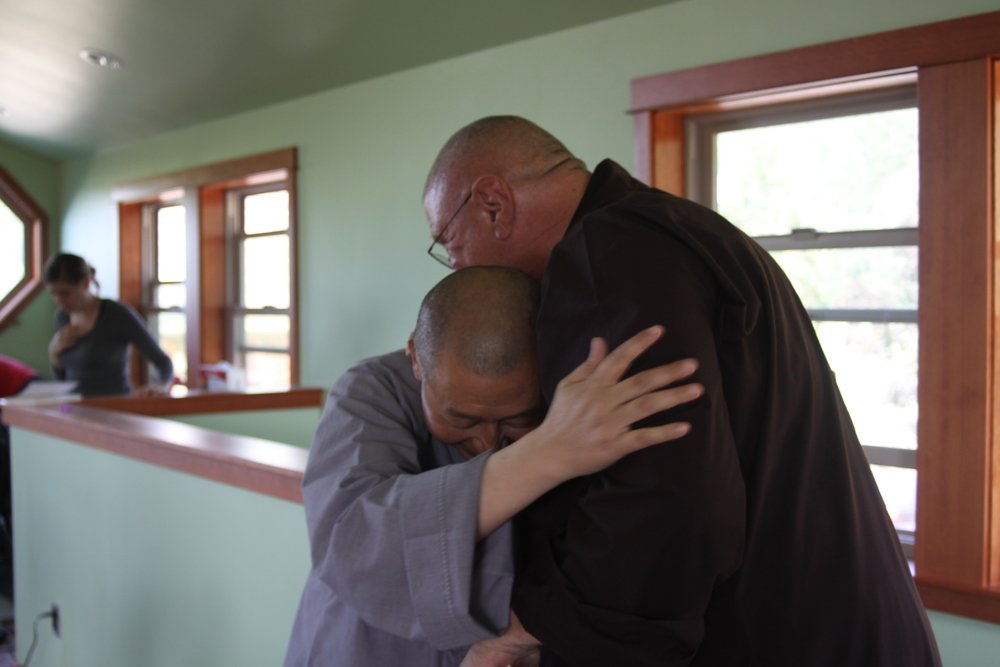

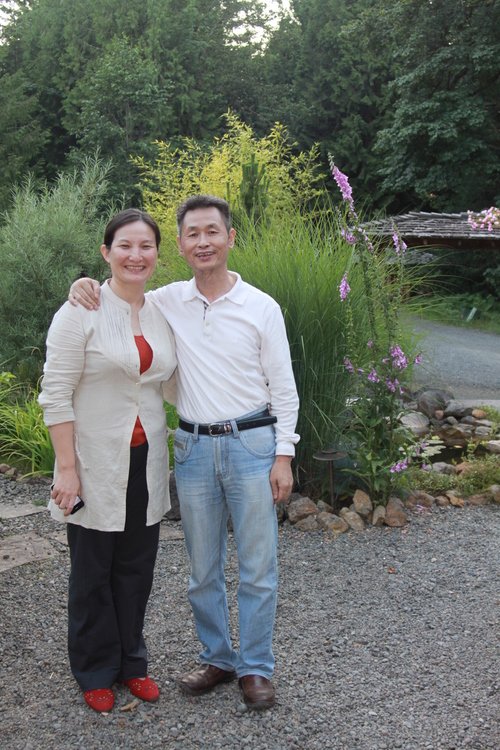

My Personal Experience
I ended up at the 2012 retreat out of sheer luck, or yuanfen (緣分 or karma), depending on your perspective. I had recently dissolved my goat farm and moved from a small village in Northern New Mexico to Oregon to teach at the National College of Natural Medicine in Portland. My life had been turned upside down, my trust in the inherent goodness of human nature had been shattered, and I was full of unresolved grief over the loss of my simple farming lifestyle full of goats, bees, a beautiful wild mustang, and apple trees, which had made a lot more sense to me than my new life near the big city of Portland. I had years of experience teaching Chinese philosophy, religion, and medical history, and of translating Chinese medical literature. I considered myself a practitioner of Chinese medicine in the sense of "nurturing life" with my biodynamic farming practices: connected to nature and all the microcosms and cycles in the macrocosm, from the seasons, stars, and moon to my animals' reproductive cycles and the microorganisms in the soil. But I had never practiced those aspects of Chinese medicine and culture that pertain to what we might call "cultivation of the heart" in English. While obviously influenced in my outlook on life by my lifetime of studying the wisdom of the ancient Chinese sages, the truth of their message had never fully sunk in or touched me to the core of my being.
The 2012 Shanrendao (善人道 "Path of the Virtuous Person") retreat changed all that within the first few minutes, when we received our first assignment: to contemplate (and then publicly acknowledge) the debt we owe to our parents and ancestors, or in other words, to honor our roots. As a native German only a generation removed from the Holocaust and Nazi trauma and the granddaughter of an important general in Hitler's army, I had grown up full of shame of my own history and roots and had resolutely turned my back on my family's and country's past by moving first to Taiwan and then to the US as soon as I could, denying my national and family identity. As for so many Germans of my generation, my country's horrid past has instilled in me a visceral aversion to nations, anthems and flags, war, bullying, violence, authority, men in uniforms, racism, and other aspects of the Nazi regime. But the German public and private determination to never allow history to repeat these horrors has also left deep wounds in many of us, due to unresolved emotions, denial of personal responsibility, trips to concentration camps etc. at too vulnerable an age or without sufficient space for processing, and trans-generational trauma.
For two weeks in the summer of 2012, I learned to honor my roots in the service of xiao 孝 ("filial piety," i.e., loving service and devotion to our parents), the foundation of self-cultivation and highest expression of the Dao in Wang Fengyi's system of emotional healing. With my retreat neighbor, a young Jewish woman from Israel, holding my hand in silent support, I learned to see and embrace my roots, in my case an intensely painful process. I realized how indebted I am to all of my heritage, both the parts that I had always embraced, like my pediatrician grandmother and all the other doctors in my family, and the parts I had chosen to deny and ignore, by beginning to embody the key principle of Wang Fengyi's teachings:
Bu yuan ren 不怨人
DO NOT BLAME!
— WANG FENGYI
After many long hard days of introspection devoted to "emptying out the garbage can," by recognizing and admitting our past wrongdoings with sincere remorse and intense emotional releases, for the first time in my life I was able to experience true gratitude for the world around me, first to my parents, for everything they had done for me, and then for every other aspect of my life, down to the core of every cell in my body, accompanied by deep regret for my previous lack thereof. The first thing I did after the conclusion of the retreat was to call my parents to thank them, and my life has never been the same since.
Opening up to my parents' love and support, I have learned to cultivate the virtue of earth, trust and sincerity, 信實 xinshi, in the five-elements cycle, to give just one personal example of this work. And the cultivation of this trust in the universe has allowed me since to make the leap of faith, take on the work of translating Master Liu Yousheng's book (see below), and eventually start my own publishing business to see the book through to publication. The picture below shows a painting hanging in my tea room that my Shanrendao retreat neighbor, Sara Frankenburg, made after the retreat and presented to me in appreciation of our time together. I look at it every single day. May the work of love and healing and forgiveness continue to grow and ripple outward in all of our lives...
“The noble person attends to the root, and when the root is established, the Dào is born. Loving respect and service to parents and older siblings, these are the root of humaneness!”
— Confucius, Analects 《論語》 1.2
More Resources
To learn more about the "Path of the Virtuous Person" and Wang Fengyi's system of five-element healing through the emotions, you can read my translations of three books on the subject:
The first book is a transcription of Liu Yousheng's 劉有生 lectures, Let the Radiant Yang Shine Forth: Lectures on Virtue. In very straight-forward words and direct, simple language, Master Liu expresses his understanding of and experience with this work. You can find out more at the book’s page in my Online Store.
The second book that I have translated on Wang Fengyi's teachings, Twelve Characters: A Transmission of Wang Fengyi’s Teachings, is a more systematic and comprehensive account of his teachings. Containing the Chinese text side-by-side with my English translation, this book offers the reader a survey of the whole system of "Five Element emotional healing" from the ground up in a clear, easy-to-follow presentation that is concise and seemingly simple, yet so deep and powerful.
Lastly, I have translated the very short Xiaojing 《孝經》 “Classic of Loving Devotion and Service to One’s Parents” as a small e-book.




